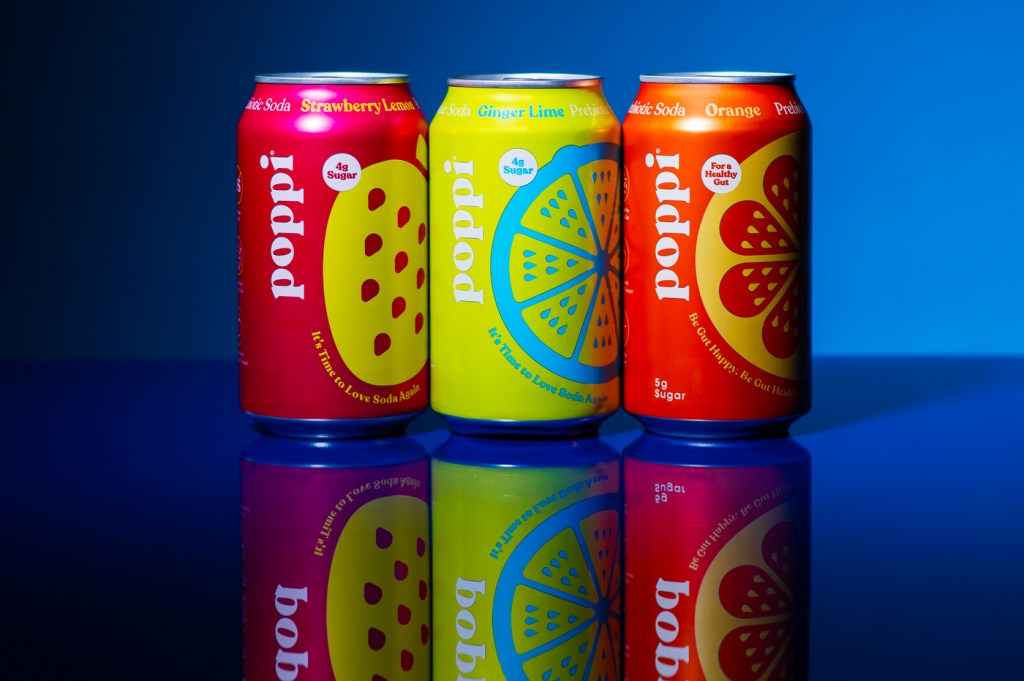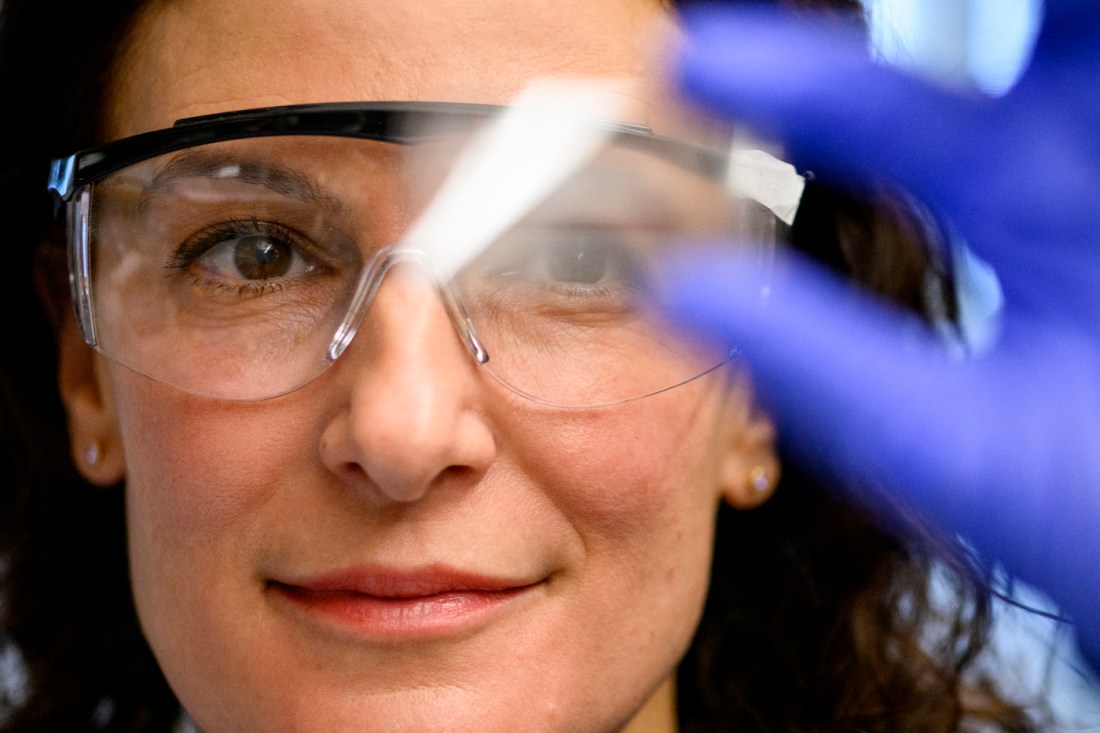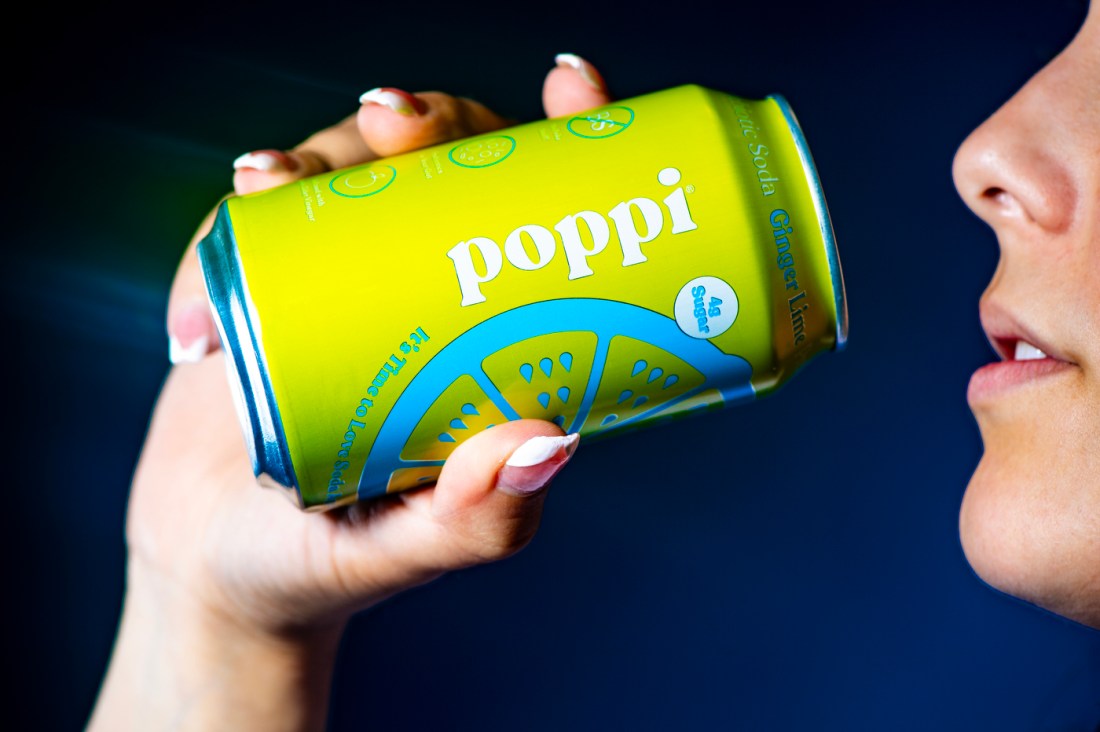Do prebiotic sodas like Poppi help your gut? Here’s why they might not be as helpful as you think
A new lawsuit says Poppi, a soda that claims to help gut health, is not that beneficial. This Northeastern expert says to try getting prebiotics through your food instead.

Health classes and dieticians drilled into people that soda is bad for one’s health thanks to all the sugar. So it’s no wonder a brand like Poppi took off.
The prebiotic soda advertises itself as a healthier alternative to a can of Coke or Pepsi. Coming in both fruity and more traditional flavors (like coke and root beer), Poppi boasts only five grams of sugar, 25 calories, and compounds that purport to help your gut health.
The brand’s claim about its gut health benefits is now being called into question in a new lawsuit. Kristin Cobbs recently filed a lawsuit in the U.S. District Court in San Francisco claiming that despite the way they advertise their product, Poppi doesn’t contain enough prebiotic to provide any actual benefit.
Cobbs’ lawsuit claims that there’s about 2 grams of prebiotic agave inulin fiber while research shows that even consuming over three times that amount on a daily basis won’t provide any real benefit.
Rebecca Carrier, a chemical engineering professor at Northeastern University, said it’s hard to determine the recommended daily dose of prebiotics, but there’s ways to get them that might be more effective than drinking soda.
“Prebiotic is such a broad term that captures such a broad set of different materials,” said Carrier who studies the interactions between biological systems and materials introduced to it. “It makes sense, in thinking of how much prebiotic is in a product, to compare that amount to what’s been shown to have benefits, or to how much is in foods that have been correlated with health benefits. What I might be concerned about is that a lot of some prebiotic beverages also contain other stuff like sugar. There might be too much sugar in the drink. Even if the amount is lower than traditional soda, that might be something you want to pay attention to.”


Poppi was founded by a married couple in Austin, Texas who had the idea to combine fruit juice, apple cider vinegar, and inulin prebiotics with sparkling water to create a flavorful, yet healthy soda. The brand took off after winning an investment on “Shark Tank” and now counts celebrities such as Kylie Jenner, Hailey Bieber, and Jennifer Lopez among their fans.
Editor’s Picks
Selling for about $2.49 a can, the nutrition label on the sodas indicate they come with about seven percent of the dietary fiber one needs in a day and four percent of one’s daily recommended sugar serving.
Carrier adds that there’s evidence to show that it might be better to get probiotics and prebiotics through whole foods like fruits and vegetables than through processed material like a soda or through a supplement.
“We have lots of definitive evidence that ingesting foods that include those prebiotics could have potential health benefits,” Carrier says. “But consuming them in beverages, I don’t think we know precisely what’s going to happen.”
Prebiotics are a food source for the microorganisms living in your gut. The term can refer to a bunch of different materials — typically fiber-based ones — that feed good bacteria, Carrier says.
When you digest prebiotics, they interact with good bacteria in your gut, like probiotics, which can produce short chain fatty acids, Carrier says. These can benefit the body in many ways, such serving as a food source for cells in your gut.
Adding prebiotics and probiotics to one’s diet can also potentially help with other health issues like stomach problems.
“There’s a lot of evidence that indicates that there’s significant benefits to consuming a prebiotic or probiotic, in particular if you have certain types of digestive issues,” Carrier says. “There’s so much evidence out there that there’s potential health benefits not just for the gastrointestinal tract, but other systemic issues. … We just don’t have enough knowledge yet to say this is the specific prebiotic you should be taking, and precisely how much.”
For the most part though, Carrier says that even if adding probiotics and prebiotics to your diet doesn’t have the desired effects, it likely won’t have severe negative consequences. At most, people might experience some gas and bloating.
But it can be detrimental when people are trying to get all their probiotics and prebiotics through sugary drinks. Beyond the potential that the body may not absorb probiotics and prebiotics as well through liquids, the lawsuit also claims that any potential prebiotic benefit of sodas like Poppi is outweighed by the amount of sugar in the soda, which Carrier verified could be true.
“It’s just common sense,” she says. “There’s some sugar lowering the benefits of certain prebiotics. I think people think ‘Oh, if I take this prebiotic, it’s going to help lower my sugar.’ But I think the same way you have to pay attention to sugar in any beverage, you have to pay attention to that sugar in the probiotic or prebiotic one in the same exact way. Sugar has the same detrimental effects on your health, whether it’s in that prebiotic beverage or not.”
“That said, marketed prebiotic beverages can contain much less sugar than other sodas – so they are likely less harmful than traditional soda if consumed in similar amounts.”
There are ways to add prebiotics and probiotics to your diet that don’t involve sugary sodas, Carrier says. Fermented foods like kimchi and yogurt, as well as whole fruits and vegetables, can add prebiotics to your diet and can be beneficial to your health.
“They’re not going to cause significant issues,” she says. “They’ve been integrated into healthy diets for long periods of time. There’s a lot of reason to think that a relatively safe and reasonable approach is to look at traditional foods, because there’s lots of studies that would provide evidence that they have potential long-term health benefits.”











